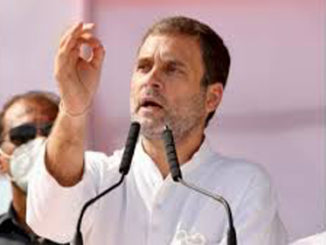India does not have the luxury of distance from the ticking bomb in its neighborhood
The suicide bombing at Kabul airport which claimed close to 100 lives has shattered any residual optimism the world had that the West pulling out forces and handing the country over to the Taliban, as part of negotiations in Doha, would result in a more peaceful Afghanistan. Instead, what the complex attack claimed by the Islamic State-Khorasan (IS-K) has proven is that no matter what assurances the Taliban’s new regime or its benefactors in Pakistan may provide, they are unable or unwilling to stem the terror threat emanating from the country, despite being provided key intelligence inputs about the attack. There are also suspicions of some collusion within the Taliban regime, as the Haqqani group that is securing Kabul and the airport periphery, is a UN designated terror entity that has carried out attacks with the IS-K in the past. That the U.S. maintains that it continues to “coordinate” with the Taliban on security should further set the seal on any idea of investigations or operations against the Taliban. As this is an alarming scenario, the Government must now acknowledge and prepare for the threats to India. The situation will further enhance India’s already hostile continental flanks, in consonance with threats from Pakistan at the LoC and support to cross-border terrorism, as well China’s LAC aggressions.
New Delhi must also focus on diplomacy to highlight its concerns, beginning with the UN where India will have a salient role. As a UNSC member, and President, India must ensure that the UN’s most powerful body does not appear helpless in the face of the Taliban’s challenge, and must make the red lines clear for the kind of government it must guarantee — including one that recognizes human rights, adopts some form of representation for its people, and distances itself from terror groups. Chief among these will be the need to ensure that the Haqqani group, including its chief Sirajuddin Haqqani who is the Deputy to Taliban chief Haibatullah Akhundzada, is not included in the official power structure. The group has been responsible for terror and suicide attacks on Indian consulates and the Embassy in particular in 2008-09. As Chairman of the 1988 Sanctions Committee that lists 135 Taliban members as designated terrorists, India must stand firm on any move to ease sanctions on them, including travel, funds access and weaponry. The UN General Assembly (UNGA)’s accreditation committee must also decide on whether to allow a future Taliban-led government to occupy Afghanistan’s seat. Given Prime Minister Narendra Modi’s visit to the U.S. later in September, where he is expected to address the UNGA, and then the Quad summit, it is important that India’s position on the Afghan situation and its impact on Indian security are articulated strongly. While briefing MPs, External Affairs Minister S. Jaishankar said the Government is pursuing a “wait and watch” policy, but that assumes the luxury of distance from the ticking time bomb in India’s neighborhood, which New Delhi does not have.
(The Hindu)





Be the first to comment